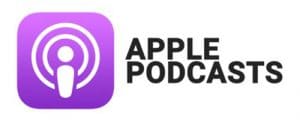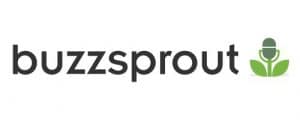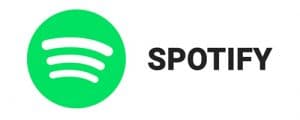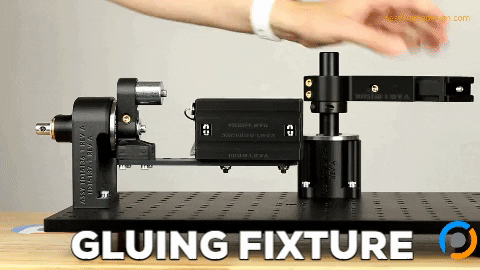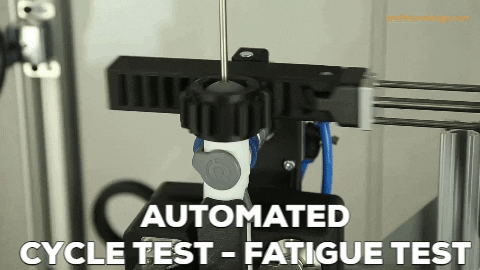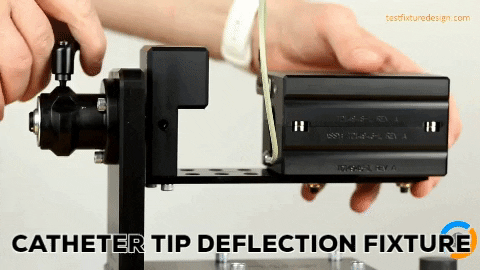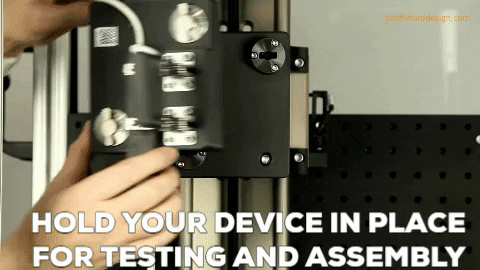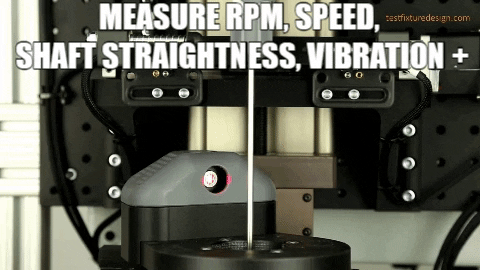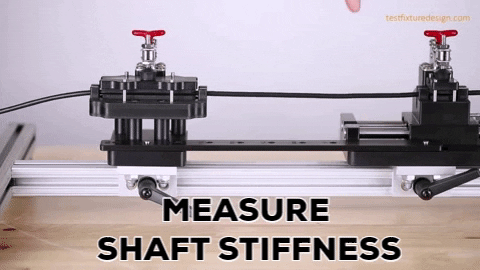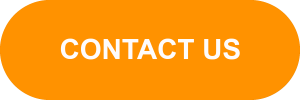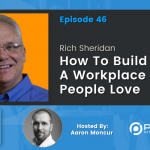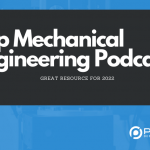Joe Mullings | Increasing Cognitive Skills & Getting Hired
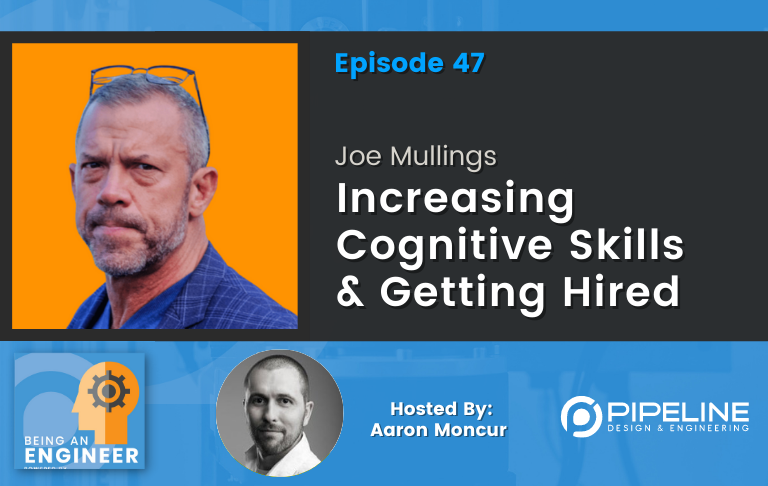
Who is Joe Mullings?
Today on the Being an Engineer podcast, we have none other than Joe Mullings. You might have seen him as the host of TrueFuture TV series, a documentary-style show highlighting cutting-edge technologies and related careers to expand the horizons of its viewers. He joins us today for another riveting conversation.
Joe has a degree in mechanical engineering and is the chairman and CEO of The Mullings Group (TMG). For over 30 years his team has been connecting high-caliber engineering talent with MedTech organizations that are building product and manufacturing teams.
EXPAND TO VIEW EPISODE TRANSCRIPTION
SUMMARY KEYWORDS
engineer, work, robots, med tech, surgeon, company, learned, years, market, engineering, headhunting, career, talk, moldings, university, built, group, joe, connect, bit
SPEAKERS
Aaron Moncur, Joe Mulling, Presenter
Presenter 00:00
The being an engineer podcast is a repository for industry knowledge and a tool through which engineers learn about and connect with relevant companies technologies, people resources and opportunities. Enjoy the show.
Joe Mulling 00:16
Heavy Duty resistance training has shown to help maintain and drive cognitive skills
Aaron Moncur 00:37
Hello, and welcome to another episode of The being an engineer Podcast. Today we have Joe Mullings, who has a degree in mechanical engineering, and is the Chairman and CEO of the Mullings group where they have been connecting high caliber engineering talent with med tech organizations who are building engineering teams. Joe is also the host of the true future TV series, a documentary style show, highlighting cutting edge technologies and related careers to expand the horizons of its viewers. Joe, thank you so much for joining me today.
Joe Mulling 01:09
Appreciate it and that true future. Docu series, by the way, is a three time Telly award winning Docu series, which we shot very, very first one in Flagstaff in Arizona and your neck of the woods.
Aaron Moncur 01:21
I remember seeing that one. Dan Casper, who has also been a guest on the being an engineer podcast was on that net show.
Joe Mulling 01:28
That’s right there any cats present guy helped actually navigate Dan’s career almost 20 years ago. As an engineer, that’s how we originally
Aaron Moncur 01:38
I remember him telling me about his time at ASU and how he really enjoyed it not just because of the academics, but in his words, because of the CO EDS. Was that part of your navigation Joe?
Joe Mulling 01:52
was a little before. But I was the one who made Dan go to the dark side of marketing from engineering.
Aaron Moncur 01:58
Oh, how interesting. Well, we’re going to dig into marketing because that’s something else that you have a lot of experience in that I would like to learn more about. Before we get into that, let me ask you, what made you decide to become an engineer?
Joe Mulling 02:13
Oh, boy. Well, it was probably growing up. My dad worked for Grumman Aerospace, on Long Island in Bethpage and Grumman Aerospace made the time caught F 14 A sixth intruder easy to see. So I grew up around airplanes. And as a little kid, I got this was before things got to strict I got to see the limb that landed on the moon in 1969. And I was always fascinated with that. And when I grew up, my dad bought me Time Life Series books, rather than kids books. So I grew up reading all about engineering, technology, life sciences, biotech. And so I was bit early by that. And then I got into Isaac Asimov and all kinds of science fiction writers and spent a lot of my childhood and probably teen years, just absolutely loving science.
Aaron Moncur 03:06
So I know a little bit about your company, the moldings group and some of the other subsidiaries or sister companies that you’re running. Now, I don’t know a whole lot about what happened between getting your degree as an engineer and starting the moldings group. Did you work very much as an engineer or did you kind of go straight into the moldings group?
Joe Mulling 03:28
Yeah, so my, my first three years out of university, so I had an internship my junior and senior year of university at University of Dayton, Ohio. And I worked summers and Christmas and holidays that a company called the Ral Fairchild out in Syosset, New York on Long Island. And Laurel made heads up displays target acquisition systems that go into fighter jets. So whenever you see a pilot looking through the screen, he or she is also looking at, you know, a bogey and data on the screen. That’s a heads up, we haven’t been cars now. So you know, what heads up display is. So I had been involved in designing the cameras that went into the heads up displays, and electro optics and mechanical engineering, and I loved thermal challenges and vibration analysis and bring up being able to sort of work on the analytics of that. And, you know, I loved it, but the problem I had was, I was working in a big corporation, and I had a pretty, pretty rapid trajectory in that corporation. And I remember getting frustrated all the time I used to, I can say this now. I used to I worked on the early 3d Computer Vision. Find out it out analysis for ANSYS NASTRAN finite element analysis, and I used to build 3d models. I would be out Friday night after work, having beers At the bar, come up with an idea, go back to morale work on the, on the CAD systems until like three o’clock in the morning, half drunk, because I was getting my best ideas. And I was passionate about it. But where I used to get frustrated is in the engineers, I don’t know all of them have to deal with this, I would come up with a prototype part, I then would have to deal with the union. To go down to the I love time in the machine shop, I’d have to go down. And I made friends very first thing is I made a friend with all the machinists, because they were the ones who knew how to make the prototypes. Back in the days where it was lathes and mills, and you didn’t have CNC machines, I’m talking 8586 87. I go way back dinosaur days. And so I would have to wait for a traveller to be filled out to get the part from the machinist hands. And I used to go down there and have lunch with the machinists. And invariably, most of them were missing a finger, all of them were opening their lunch, and folding their bags and tin foil afterwards. I just love that culture. And I used to get frustrated because I could get things done twice as fast if I didn’t have to live by the rules, that the union had to move the part fill out of travel or wait two days for it to get down. Everybody knows this. So I think the last straw was I was sitting in a meeting I just got back from I think it was either in Portugal or came back from especie or turkey. And I was out in the desert working on some F fours doing installs on one of the cameras. And we’re sitting in this conference room and I looked around the conference room, and I love the genius around the table. But I looked at how miserable some of them were working in a large corporation. I said, Okay, that’s the VP of engineering right there. I really respect his intellect and his problem solving skills. But I don’t want to be that guy who’s constantly smothered, and suffocated, because I have to deal with corporate rigamarole to get a product out. And I resigned myself to that day. And then I went out and started a side hustle, opening up health clubs on Long Island. And I wake up at five o’clock in the morning work from five to eight is, as an owner of a health club, there were a number of health clubs that were struggling. And then at five o’clock to eight o’clock or 10 o’clock at night, I used to work the health club. And then we built those up while I was in engineers sold them make some good money. And then I went lived on a boat for a little while. And I got bored with that. And I walked back into a headhunters office and I said, Listen, I need to find a job that’s going to challenge me, we talked for two hours, and he said, Did you ever think about search? And I said, No. And I said, what your top salesperson make last year, and he told me, I’m like I’m in. And that was December 4 1989. So I knew I get to stay close to technology, I knew I’d get to find the people that were like me, which is why I deal with startups a lot. And then I knew I’d be able to facilitate their dreams and aspirations to get them to places they felt they needed to go to move away from and move to. So that’s a really long answer. But that gives you some baseline.
Aaron Moncur 08:11
That’s fantastic. I love everything you just said there. How fascinating when you were building up the health clubs, I mean, you said like five to eight in the morning. And then after 10pm or something, when did you sleep? Or did you just not sleep much during that time?
Joe Mulling 08:26
Yeah, in the early days, sleep was overrated. Now I get a good solid eight hours, but I go to bed at eight and wake up at four. Right? So I still get up early. But I go to bed early. But back in that day, you know, when you’re mission driven, and you absolutely know that you’ve got something you could execute on. I probably got around five hours of sleep a night at that point in time, but I gotcha was what 2324 25 You should be able to live on that sort of, you know, Cadence, and I was a fitness fanatic. So I made sure I eat right, and made sure you know, I was in good shape. So I think if your body’s in reasonable shape, and you’re really possessed by something, you can get away with that for a few years.
Aaron Moncur 09:08
It seems like you have been very disciplined when it comes to at least your own health and physical well being throughout the years. And that’s something that maybe a lot of us engineers included, take for granted, especially when we’re younger. I know that I’m 42 now and I’m starting to feel it right. And I’m starting to do some research and understand what things should I be doing to take care of my body and help me be a little bit more perform not performance driven, but increase my performance overall. Are there any like pro tips that you’ve gleaned over the past, you know, 2530 years that that you do all the time that you feel like are super helpful for you and might be helpful to the engineers listening to this as well?
Joe Mulling 09:54
Yeah, so the answer is yes. And the number one thing that there’s quite a few white papers on And especially for engineers who I think if, if we lost anything, the last thing we would want to lose is our cognitive ability. Like you could take an arm from me, you can take a foot from me, you could take most things from me. But if you take my cognitive ability, I don’t know how long I would last as far as being fulfilled, right? So, heavy duty resistance training, has shown very clearly scientifically, that the blood flow to the brain is what will sustain your cognitive abilities longer than anything else, longer than medicine longer than cardio. Heavy Duty resistance training has shown to help maintain and drive cognitive skills.
Aaron Moncur 10:46
I don’t think I had heard that before. That is kind of a boom, drop the mic moment right there. For me, heavy duty resistance training. I’ve done resistance training ever since I was in high school, but I don’t think I’ve ever thought of it is specifically in those terms. So thank you for sharing that. That’s awesome. Let’s let’s so now you’re you’re a headhunter, right? You’re working for someone else, I guess. You’re kind of cutting your teeth in that industry. And then at some point, you say to yourself, you know what, I think I can maybe do this better? Or I’d rather do this on my own instead of for someone else. How did that transition occur into the Mullings group, and then maybe talk just for a little bit? What what is the moldings group? What do you do there?
Joe Mulling 11:27
Sure. So in full disclosure, when I interviewed with Sebastian goalsI, who I owe a debt of gratitude to, I told him when he hired me that said, I’m going to work for you for two years, I’m going to be the, I’m going to make it the best apprenticeship I ever could because I learned about apprenticeship from a very young age I, I did construction at a young age. And I always gravitated towards the the older crowd, because there’s, there’s a lot to learn in that in that cohort. So I said, Seven work for you for two years. And then I’m going to start my own firm. And at that time, I think I was 27. And he chuckled at me and said, Sure, Joe, whatever you say, if you make enough money to open up your own firm, because that would have cost me about $150,000. At the time we figure out the budget. I’ll send you on your way. And two years and four weeks to the day. I went to Sebastian and said, I’m going and he sent me on the way with a big hug. And then years later, I went back and bought his firm when he was going to close it. And he said it wasn’t worth anything. And I said it was and I wrote him a relatively large check, and took a coat hat, a coat rack, and a mirror that I still have. And that’s all I took from him. And it was my way to say thank you for giving my chance in this incredibly wonderful business. So I did that I moved down to Coral Gables, Florida. And at that point in time, My specialty was if you’re going to be successful in anything, and we’ll get to that later. And headhunting especially you have to go deep right and specialized. So I had originally my first two years in my desk was aerospace valves, so valves in the aerospace industry, with companies like Parker Hannifin, Murata, scientific, Valcourt, engineering, the lead company, these were high precision valves used in aerospace. And I had stumbled one day on a search with Falkor scientific, and they made micro metering valves that went into scientific instrumentation. And I was fascinated by that. And I threw myself into learning what that med tech industry was. And then when I looked at it, it hit me like a bag of rocks. It was like, okay, everybody’s getting older, they want to live longer and healthier lives. Technology is always going to seek a higher ground. It had a built in governor that was important when you pick a business. And people say why would you want that because the built in governor and med devices, the FDA, and it’s because I you know, you look at the housing industry and oh eight, it grew tremendously and crashed you look at.com It grew meteoric ly and crashed. But Health Tech med tech at the time is about a six to 7% growth rate. But within that, you’ve got micro markets that grow at 30 to 40%. So if you can unravel the micro markets within the macro market, you can dominate those. And so that’s what we did. And over my 30 years with amalinks group, we have seen where the venture money is going where the private equity money is going, where the public market and the m&a activities are. And we’ve predicted where the hockey puck in the Gretzky way was going to be not where it was today. And so that’s, that’s what we that’s how we got into med tech. And that was the start of my career and the moldings group is a series of companies. It started with search. And then we moved into media aggressively and have done extraordinarily well there. And we have moved into the production business, which is where I’m chatting with you today from our studio, we’ve got brick and mortar studio, a pretty big studio here, and a full production company that we aim back at the market, in order to tell stories at scale.
Aaron Moncur 15:27
I have felt for quite a while like, and this isn’t my original idea, a lot of people tell this the same dog by think that for a company to really truly be successful, I mean, you know, really successful. That company really has to be a marketing firm that does XYZ, as opposed to an XYZ company that does some marketing it I get the sense that you would agree with that. Is that accurate?
Joe Mulling 15:54
Absolutely. You nailed it. And I think you know, a friend Gary Vaynerchuk said that a long time ago, Gary said, if you’re not a company, that’s media first and happens to do a service a craft second, you’re going to be beat by the company that does it that right way. So I would agree with that. And in fact, it’s it’s, it’s rang true for us. And it’s also rang true for the clients that we service now, in the med tech health tech market, their businesses have grown at a much more rapid healthier rate than if they had not done media.
Aaron Moncur 16:29
Yeah. How did you first come across that realization that we have this this headhunting business, this recruiter firm, we need to insert this this high performance marketing company into our current business?
Joe Mulling 16:49
Well, it was a it was a joint venture that we were we were, I think it was 24 firms were interviewed for a joint venture between Google and Johnson and Johnson to make the world’s most sophisticated robot and it was called verb surgical at the time. And Scott Heinekens, who ended up now is a good friend was the CEO. And he flew us into California and said, Listen, I’ve got 300 Plus hires, I have to make PhD software, firmware web system engineers mechanical. And are you up for it? I’m like, gotcha, Scott got your back covered. But the, the shoe the drop, the other shoe that dropped was, we can’t show the robot. We can’t even let candidates who want the job inside the halls at Google because it was, you know, out of their verily group, which is highly secretive. And we’re, we’re competing, and we want the best out of Tesla, and Intuitive Surgical and apple and LinkedIn and Facebook from the software engineer side. And we want those people and we won’t settle for less. So in my head, I’m doing the math backwards. So 300 hires, means four to six candidates per hire means two interviews each on that do the math my people on that, right? And then all within two years in the Bay Area, which is the most expensive. I said to Scott, I looked at him and I said, gotcha, no problem on the flight home. And my mind, I’m like, I just made a promise that I have to come up with a solution. And I was on Facebook. I was on Facebook, and I’m like, wait a second, there are people connecting at scale. There’s this new platform called LinkedIn. At that moment in time, LinkedIn was just releasing video. I went to LinkedIn. And I believe we were the very first recruiting firm on LinkedIn to have video. And I said, and it was it was just, it was the perfect convergence of opportunity. And also courage on my my team, and said, Let’s start doing a Facebook mentality on LinkedIn and start telling stories. Not about the product, because we couldn’t, but about the market and the product on how it can serve that market. And then the people who make the product who serve the market, and that’s how we got started. And we and the videos are still online, if you if you go to YouTube and you put in Mullings verb surgical, we because we were not allowed to shoot inside of Google. They were interviews out in the parking lot in front of the Google Sign interviewing all of the executives who were meant to attract the high fliers in the bay area there. So that’s how it all started. And then from there, we started with two little Sony cameras. And then I knew we had something here and we went pot all in and have invested millions of dollars and have recruited some of the most talented people from industry. And I paused when I said that because I got people on the team who do not come from media originally, who are now driving ideation, crafting messaging. And then I got other people who were independents, 1090 nines, who saw the vision. And so we created this team that can turn things around and have some of the most well go look at true future.tv. And look at what they’ve done. Just go look at that. That is Bourdain style, cinematography, traveling the world telling the stories about the entrepreneurs, who are all engineers who are making things to make a better place in the world.
Aaron Moncur 20:36
I have a question about a few of those episodes in just a second before I get there. First of all, what a great story about the beginning of dragonfly stories, I think, right out of your media company. And what what were some of the things that these executives said that were so attractive to these really high caliber engineers?
Joe Mulling 21:02
You know, it was one of those things that said, Okay, so if you’re a Facebook and you’re a software engineer, what would you be more interested in doing keeping somebody on a browser for 38 seconds longer, or creating a robot that’s gonna save your grandmother’s life? You make the choice?
Aaron Moncur 21:17
No brainer. No brainer. Like Steve Jobs comment about sugar water. Right.
Joe Mulling 21:21
Right. Right. Ended up being a bad hire, but it was a great. Yeah, that’s true. It was it was a great statement. It’s a close in an interview. But we know how that turned out. But yeah, yeah. And we just talked about. And again, all of our engineers are engineering, not who’s listening to the session, is, whatever you choose, going to choose to do, it’s really important, certainly, that it’s going to leave you fulfilled, right? Also make sure that you look at what you want to do and project out where is that market, most likely, or potentially going to be three years from now, and make sure that there’s a market there, or there’s a market for sure, that can be created there based upon where society’s moving. And that’s important differentiator. And then once you know where that is, look at these four pillars of market product as it applies that market leadership. And why you might show up every day in the parking lot and walk into that building. And then if you can line all those up, and feel 100%, then you should pursue it.
Aaron Moncur 22:31
Yeah. Well, what a great story again, I love the entrepreneurial aspect of that as well. You tell this guy, yeah, no problem. We can do that. And then you think to yourself, well shoot, how the heck are we going to do this? Right, make the promise and then figure out the solution afterwards?
Joe Mulling 22:44
Engineers, right, we
Aaron Moncur 22:45
walk in pantries do and that’s what entrepreneurs do, right? Yeah. Right. We
Joe Mulling 22:50
walk into the pantry. I gotta gotta cook tonight. And I look around and there’s some potatoes and some old cheese. Right. And there’s some duct tape and I’ll figure it out.
Aaron Moncur 23:00
Apollo 13, comes to mind. Yeah. All right. So in addition to TMG, the Mullings group, and dragonfly stories, you also have TMG interim, which I think would be really interesting to a lot of our listeners, you know, being engineers, can you share a little bit about what TMG interim is and how engineers can benefit from that?
Joe Mulling 23:22
Sure. So it’s the contract business, you know, we believe that there’s an interim category will not believe evidence shows that it’s been growing dramatically, proportionally, over the last five years, the contract workforce has definitely, you know, put a stake in the ground and organizations as well as individuals are moving. In, in a very, very aggressive way into the contract world. It used to be when you were a contractor, people would snicker and say it’s a it’s a it’s a fancy word for unemployed or unemployable. Right. And then the people who were in that market love the work they do for the most part, but always were anxious about the time between gigs, right? Because if you’re, you’re a professional contractor, soon as you finish your gig you usually had unless you were fortunate to line things up end to end. You were in between gigs, right before work from anywhere. Or organizations had the ability through the Internet to connect you, right? I mean, because the internet isn’t that old in relative terms, to be able to push through massive amounts of data, right? So we could always get the E and connect but you couldn’t push massive amounts of data through but now you had that ability to connect anywhere in the world and work collaborate with teams. So contract or interim was created as an additional solution for our clients and maybe more importantly, an additional service option to provide to people who maybe don’t want to look at a full time job or maybe want to transition or maybe are professional contractors. And so we manage their careers for them and move them in and out of roles. And they tell us listen, my gigs up in March 2022. I want to do extrusion, I think I want to be in the Pacific Northwest or the southwest. And I do I blow balloons going back to Casper sick. So then I can call up a guy like Casper sick at Boba and say, listen to any I got a balloon person who is going to be available, but not till March, you know, do you want to load the bench up? Do you want to know who they are. And now what we’ve created is this great relationship between shortlist of a players in contracting. And then a great list of clients who are always on the lookout for sick talent. And whether it’s finance design, development, qual CLIN Reg, any of that, we’re able to match those up, and then we facilitate that we become the employer of record, we manage all that relationship, and the person basically just shows up and gets their contractor’s check, and never has to worry about a thing.
Aaron Moncur 26:12
What a fantastic service. For those individuals who are interested in learning more about TMG, interim, how can they find out more? How can they potentially even sign up to be one of these candidates?
Joe Mulling 26:27
So you can reach out to our firm just reach out to me and what I can do is connect you with the correct individual in our firm, for sure.
Aaron Moncur 26:36
Awesome. All right, let’s go back to true future. You mentioned, we’ve talked a little bit about it already. I was I’ve watched several of the episodes, there was one in particular that kind of caught my attention. It was in season two, and it was focused on robotics in med tech. And based on what you have learned with these direct interviews you’ve done with with some of these really amazing companies out there, what what are some of the trends that you’re seeing right now, in robotics, and med tech, what are some of the opportunities that we should be looking out for?
Joe Mulling 27:12
Ah, well, if we’re going to talk about med tech, in particular, in robotics, you know, you’ve got you’ve got the advice, you’ve got the advisement, you’ve got the augmentation. And then eventually, you might have the automation, right. But I think we’re quite a ways off from full on, turn the robot on step back and let it do its job. Although there are a few companies out there right now that do have that capability. But the market and the surgeons are the intervention lists are not prepared to do that. And either is the FDA quite honestly. But what robots can do is they can offer insight and advisement to the surgeon and augment the surgeons skills from either reach or precision, or repeatability, or even make a good surgeon great based on using the robot. And so you’re giving a surgeon a massive amount of information that she can then enact the protocols that she’s learned at university and deliver them with a higher precision than the human hand can do. And that’s what robots are really going to do. And my engineers on here know the difference between general AI and narrow AI. Right. So general AI has no place in med tech and may or may not ever, because it’s such a broad category unnecessarily, is to freestyle for what the FDA will allow, however, narrow AI and for highly predictable, very precise, repeatable, gathering salient information, prospective and retrospective data and bringing that into the decision process. Based upon real world evidence a robot can say, Okay, Dr. Field, you are about to do this, you’re about to do this surgical move inside the abdomen of a patient based upon 5222 surgeries that we have a record of. And with your patients biometric records, and their physiology that we have images of you can do one of three things and based on these percentages, this is what we recommend you pull the trigger, but this is what we recommend. That’s what robots do robots really facilitate the gathering of data and then allow the clinician to make a better decision and then augment their skills.
Aaron Moncur 29:44
He used a very interesting term on that episode, you said that robots are democratizing health, not just healthcare but the the abilities of different surgeons to perform these procedures you’ve already You alluded to it heavily. Can you talk just a little bit more about what does it mean to democratize these medical procedures?
Joe Mulling 30:05
Sure. So the democratization of healthcare is what we should be looking for, like every human on Earth deserves to have the same standard of care. Now, obviously, we have access issues. Obviously, we have cost issues, right. But where we can we want to democratize care. And so let’s say you’re out of your residency, you’re, in other words, here you go. Do you want your mom to be the very first case that a surgeon is going to be doing some shoulder surgery on her? Because she heard it playing tennis? No, no, no. But what if that same surgeon had the database, and the built in knowledge in that robot, or in that entire network of robots that are placed around the world that then get pushed up to the cloud that then inform that surgeon, and that surgeon then goes into that shoulder, and may or may not stitch as a surgeon who’s done that surgery 2000 times, but the robot democratizes that and pulls up the level of experience, and downloads the insight. And then therefore you’re democratizing surgery, and you’re elevating the skill level and the intellect level, based on the experience of others,
Aaron Moncur 31:25
that really connected the dots for me. In fact, it makes me think that the robotics that are involved now, like the DaVinci, and things like that, in medical procedures, that is the closest thing that we have, as as humanity to the movie, The Matrix, right, where they just upload all that information, and all of a sudden, you can fly a helicopter, all of a sudden, you are, you know, three times Black Belt world champion in taekwondo or whatever, all of a sudden, with these robots. Like, it’s the democratization, right? That really connected the dots for me, I get it. Okay.
Joe Mulling 32:03
But that’s, that’s broad AI, which does not exist and probably won’t exist. In most of the categories, whether it’s aviation, whether it’s self driving cars, whether it’s a surgical robot that requires a much higher engineering, data and tech than we currently have today. And that’s what scares people about robots, people think about Terminator and matrix, that that’s what robots are going to do, they’re going to take over the world. Robots. Currently, I think one day, we do have a problem, but it won’t be in my lifetime, and my kids lifetime. Right now, robots really are only good for the most part at a prescriptive task and taking that data in. But we, in our mind, are demonizing a worried about it. They’re gonna take us over and and I don’t think we have any of that in the near term future. But should we harness it, it could give us incredible advisement, that then allows us to perform better and it’s look, it’s an aviation, right, I just took up flying, like the amount of information that comes in and the guidance given to you based upon data allows it to process much more quickly than just the simple algorithm I have in my head, I get to download other people’s experiences.
Aaron Moncur 33:26
I’m going to switch gears here a little bit ask a different kind of question. Because of your position at the Mullings group, you have gained access to some of the top companies in the world in the context of understanding what they’re looking for. When it comes to hiring new engineers, what what are some of those top traits or behaviors or habits that engineers who really wants to take their career, you know, all the way to the top, they want to maximize their performance? What are some of those careers or habits or traits or behaviors that they should be focusing on?
Joe Mulling 34:08
So you know, there’s there’s different times and different sort of periods of your career, right? So if you’re just at a university, one of the toughest jobs to get as your first job for the most part, and that generally is if you’re really going to go after the job that you went to university for. So just know that going in this way you can manage expectations as you but you have to get on the field. You have to get on the playing field and get into a technical engineering role in any category whatsoever. Because then what they’re looking for is and again, don’t hold out. It’s like if you went for biomedical engineering, and but you have a job offer from a transportation company that makes truck trailers You’re better off taking that getting in the game than waiting. Okay, so that’s number one. And there’s a couple of reasons for that. But on the engineering side, then you can immerse yourself and actually get involved in developing product processes. You learn how the game is played, you understand the discipline, because what you learned in university for the most part, unless you did a heavy internship, very little little of it, transfers of value in a corporation, you’re, you’re taught how to think. And unless you’re literally a PhD, who’s going to be sitting in a lab all day. From a category perspective, most engineers aren’t going down that path. And so you’ve got to get in. And then what you’ve got to do is demonstrate project management skills, you’ve got to demonstrate the ability to collaborate, you’ve got to demonstrate the ability to bring something to market. And then what you’ve got to be able to do is show promote ability. And you also want to start to build your network and your first job. You want to build that network, it’s critical to build that network. And you’re only 21 or 22 years old at that time, you don’t know a thing. That will be the dumbest you’ll be in your career. So don’t overthink things. Really. Don’t Don’t Don’t overthink, there are a few that will know exactly what they want to do. They will get
Aaron Moncur 36:29
That’s great advice. And really a perfect segue into my next question, which is, okay, now you have a little bit of experience as an engineer, you’ve learned some tricks. How does an engineer market himself or herself, you know, as they’re trying to advance in their career, you you’ve built this incredible media company dragonflies stories, what what have you learned about effective methods for engineers to market themselves?
Joe Mulling 36:55
Yep. So market yourself in concentric circles starting from the company you’re working for. And network there, right and get to know the smartest people and show up in their every day somehow or another on their on their radar screen no matter what it takes, even if it’s you working after hours, even if to working through lunch. So that’s that. But if you think about the progression of the ability to market yourself, I don’t know if some of you remember monster.com. And that was the first real resume platform, but generally resumes were on there when you were unemployed. And then somehow or another. LinkedIn allowed you to put resumes on while you were employed, and you didn’t get called down to HR. And so in LinkedIn, you ought to be and I’m hoping some university people, and I’m sure they do listen to your show, you need to start your LinkedIn profile in university, do not wait till you get your first job. And your LinkedIn profile should not be a pared down version of your resume. Your LinkedIn profile should be updated very often about what are you working on today? And don’t write that for human eyes. Write it for an algorithm, write it for a search engine? Because the only way you’re found on there is through a search engine.
Aaron Moncur 38:16
Are there any tactical tips that you can give for how to write a resume or your LinkedIn profile that will be found more easily and readily by a search engine algorithm?
Joe Mulling 38:26
Well, sure, so first of all, write it for an algorithm, not a person. Secondly, understand what the key words are in your industry. Also understand that titles are different in every organization, product engineer, product, Project Engineer, r&d engineer, Research Engineer, right? So what you want to do is make sure let’s say you’re a product development engineer just for fun. You should also say, put tags in the bottom of the current role. You’re in r&d engineer, comma, product engineer, comm a project engineer, comma, aren’t, you know, a research engineer, right? So because that’s how most organizations will do their search and Boolean fashion. So that’s, that’s one. And then to talk about the tools you use. Because again, and very specific tools, whether you’re on the supply chain aside, or MRP, or analytical tools or software, put those in there. And again, write it for an algorithm not for somebody who’s just going to go look through 10s of 1000s of resumes without it being searched, driven to start building it in college.
Aaron Moncur 39:42
Yeah, I think that’s very sage wisdom that different roles are described or named differently in different organizations and to have that that insight and use the terms product engineer, Project Engineer r&d, engineer, that’s, that’s very smart. I’m going to ask another question that we’ve kind of talked about a little bit. But I’d like to see if we can squeeze a little bit more out of that. I asked, What are some of the traits that employers look for that engineers should be striving to instill in themselves now kind of flipping that 180 degrees, that the engineers that you have seen become the most successful? I mean, you’ve been doing this for 30 years, you’ve seen a lot of engineering talent come and go, the ones that have been the most successful, what are some, some of the habits or behaviors that you see them practicing on a regular basis?
Joe Mulling 40:46
I would say, so let’s let’s, let’s, let’s get a given in there that your cognitive intelligence is is, is at a high enough level, and that ties into IQ. But then what you’ve got to do is you become a specialist, right? So once you decide what you’re going to pursue, become a specialist in that area. And then look for a swim lane to the left and look for a swim lane to the right directly to the left directly to the right, and pick up some skills along the side there. What do I mean by that? So if you’re a straight down the middle analytical engineer using certain tools, who do you interact with, you interact with maybe quality and manufacturing? Right? So you need to start to pick up skills to see how is what you do directly influence your neighbor in that product development commercialization process. So that’s one. Two is the one skill I’m seeing that is almost always requested these days, is project management skills. PMP certification, pay for it yourself, right, there’s different levels of it. But when I will let you know in that three to five, three to seven year category, actually all categories for that matter. But where you can really arbitrage that is go get yourself a PMP certification, PMO certification, very, very important. Because if you don’t know how to architect, document, can’t per chart, marshal resources, project out, you’re not going to be able to, you might get the job, but you’re not going to excel in the job. And then finally, be an unbelievable communicator, work on your communication skills, especially your written communication skills, but don’t write for an engineer, right for a human reading, what you’re writing, and you can always add technical density to it. Right, but make sure you’re writing because the people if you think about the people who read what you write, that you want to influence, they generally are up stream. And they want less technical, they want to know that you’re technical, but they want to see that you can articulate to other human beings who might be in sales, marketing quality, or some other function that you’re able to communicate with them.
Aaron Moncur 43:20
Yeah, the PMP. One, that’s, that’s brilliant. That’s not one that people talk about very often, as far as the skill that engineers should pick up communication. I talked about this with most of the guests on the show, and communication is something everyone brings up. And I agree 100%. With that, I always say that an engineer that is brilliant, from a technical standpoint, can reach a certain level in their career, you know, probably fairly high. But there’s going to be a ceiling a limit to how high that person can go if they don’t have exceptional communication skills, versus an engineer who has truly exceptional communication skills, but maybe his or her technical abilities are, you know, they’re they’re okay, they’re pretty good. But they’re not up at that stratospheric level, there’s almost no limit to how high that person can go in their career with those really exceptional communication skills.
Joe Mulling 44:16
That’s right. And then I would add to that is the ability to influence and there’s a great book out there by Professor Bob Cialdini, actually, he’s out in Arizona called Influence, in fact, and every engineer should read that book. Because what we’re doing around the table is we’re trying to influence people with our ideas. And we’re trying to influence the process. And if you understand the triggers and human nature in order to influence a process, it will be very, very clearly recognized around the table of the people who may be from a hierarchy perspective are above you will note that and put you in an opportunity in order for you to to Excel and then move forward. So Bob Cialdini influence, it should be on the reading of every single engineer who steps out of university.
Aaron Moncur 45:10
Excellent recommendation, I read that book, it was absolutely worthwhile worth reading. And I’ll go on a quick tangent here. Books are some of the cheapest, most highest ROI methods I have found to increase my own capabilities I’ve done, I’ve done a fair amount to educate myself over the years, especially over the past five to 10 years. And I’ve gone to conferences that cost 1000s of dollars. And, and I’ll pick up some good ideas there. But I’ve also read books that cost $10. And I’ll put pick up ideas that are every bit as valuable from those books, you know. So that’s right.
Joe Mulling 45:55
And you know, with with within this is the part about cognitive intelligence. And IQ is, you also want to study other categories, because really smart people are able to take an idea and conceptualize it and drag it across the spectrum to something else that and again, most inventions come out this way, and are able to drag that behavior or drag that technique or drag that thought to their area or their vertical of expertise, and look at challenges in a much different way. And again, like my facebook example, on the flight back on that I introduced media to headhunting that had never been done before. And I drag that from a Facebook categories and engineer across into headhunting. And now it’s become a standard for the advanced headphones.
Aaron Moncur 46:49
Nice, nice. We’re, we’re getting towards the end of the interview, I have just a few more questions here. And these next few questions, I’m going to depart from the technical side of things a little bit. Can you think of a time and example where you had some problems, some challenges you were facing? And it was so hard that you just wanted to give up? You just wanted to quit and say, This is too much too hard. I’m tired of this pain I’m experiencing. I just want to be done and leave. But you didn’t you kept? You know, you were persistent. You made it through somehow? And then what what is it that you took away from that example? What did you learn there?
Joe Mulling 47:33
Wow, there’s so many there’s, there’s physical challenges, there’s mental challenges, there’s health challenges, there’s emotional challenges. So gosh, pick your poison on that one. But I think across the board, the first thing that I’ve learned this number of years ago is you’re not going to die. First of all, you’re not going to die. And and you’ve come this far, and so to quit right now. How are you going to feel when you take a break? And you come back a week later? How are you going to feel about yourself when you walk away from that? And so you have to ask that question, because there are some things that you should walk away from. But only if you can answer that question is okay, I’m going to project out and I’m going to be sitting comfortably on a porch somewhere. And this is my image, I’m actually use a rocking chair, I’m going to be sitting on a rocking chair, and my head is going to be clear. And I’m going to have walked away from that challenge. In my current state of mind, how am I going to feel about that? And I asked myself that question. And if I could be like, oh, you know what, right now, I think I’ll be okay with it. Let me talk about it in the morning. I’m actually going through something very, very intense right now and that same exact area. And if I can wake up the next morning and still walk away from it, then I probably should.
Aaron Moncur 49:03
I would love to supplement that with a quote I have on my wall here from Steve Jobs. This was talking about Steve Jobs a lot during this interview. I’m not necessarily a Steve Jobs fanboy. But it was a commencement speech that he gave, I can’t remember to what university but he says you can’t connect the dots looking forward, you can only connect them looking backwards. So you have to trust that the dots will somehow connect in your future. You have to trust in something your gut, destiny, life, karma, whatever, because believing that the dots will connect down the road will give you the confidence to follow your heart, even when it leads you off the well worn path and that will make all the difference.
Joe Mulling 49:42
Amen. So Amen. Because sometimes we we get caught up in only what we can say and again, this goes back to my advice to other engineers is study things outside your expertise that challenge you intellectually but are a brand new category of learning. And that is the dots sometimes that are those aha moments, or there’s so many analogs and other things that we can drag over. And if you’re an engineer, you’re smart. You’re just smart. Right? And so trust that and start priming the brain, like I’ve learned other languages, Brazilian Portuguese, you know, I took up flying. And I found that my sensory acuity and my cognitive intelligence was reborn and sharpened again. And so I would say, do that have a constant, constant ability to offer the plasticity to your imagination?
Aaron Moncur 50:38
All right, I’ve got one more question for you, Joe. And then we’ll wrap things up here. What is one of the greatest things that you have learned in life? And that’s very broad, open ended. So take that in what what, whatever direction you want. But what is one of the greatest things that you have learned in life?
Joe Mulling 50:56
Reflect on everything but regret nothing? Hmm.
Aaron Moncur 51:01
I love it. Reflect on everything but regret nothing. Joe, this has been fantastic. Thank you so much for sharing your time today. I, people are going to want to learn more about you and your group after hearing this this interview. Where can they go to learn more?
Joe Mulling 51:20
Sure. So Mullingsgroup.com is our search firm, especially we cater to engineers, which might people Joemullings.com, to give you a little bit more about career development and career insights and quite a bit of content there. And of course, LinkedIn Joe Mullings at LinkedIn.
Aaron Moncur 51:39
Wonderful, you know, I feel very energized right now, this has been just a treat for me. I’m so grateful for you to take some of your time and spend it with me. So thank you again for for joining me today.
Joe Mulling 51:50
You bet. Thanks for the opportunity and shout out to everybody out there making a difference.
Aaron Moncur 51:58
I’m Aaron Moncur, founder of pipeline design and engineering. If you liked what you heard today, please share the episode. To learn how your team can leverage our team’s expertise developing turnkey equipment, custom fixtures and automated machines and with product design, visit us at Teampipeline.us. Thanks for listening.
***
We hope you enjoyed this episode of the Being an Engineer Podcast.
Help us rank as the #1 engineering podcast on Apple and Spotify by leaving a review for us.
You can find us under the category: mechanical engineering podcast on Apple Podcasts.
Aaron Moncur and Rafael Testai love hearing from their listeners, so feel free to email us, connect on Facebook, Twitter, Instagram, and subscribe on Apple Podcast and Spotify!
About Being An Engineer
The Being An Engineer podcast is brought to you by Pipeline Design & Engineering. Pipeline partners with medical & other device engineering teams who need turnkey equipment such as cycle test machines, custom test fixtures, automation equipment, assembly jigs, inspection stations, and more. You can find us on the web at www.teampipeline.us.
***
Valued listener, we need your help getting to 100 podcast reviews. Win a $50 Amazon Gift card if you leave us a review on the Apple Podcasts. Simply email a screenshot of your 5-star review to Podcast@teampipeline.us, the email will be in the show notes. We will announce 5 lucky winners at the end of the first quarter in 2022.
You’ve read this far! Therefore, it’s time to turn your headphones up and listen now to this episode to learn all these. Above all, don’t forget to tell your friends who might like this too!

